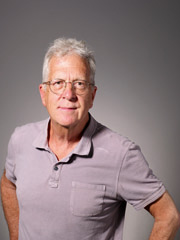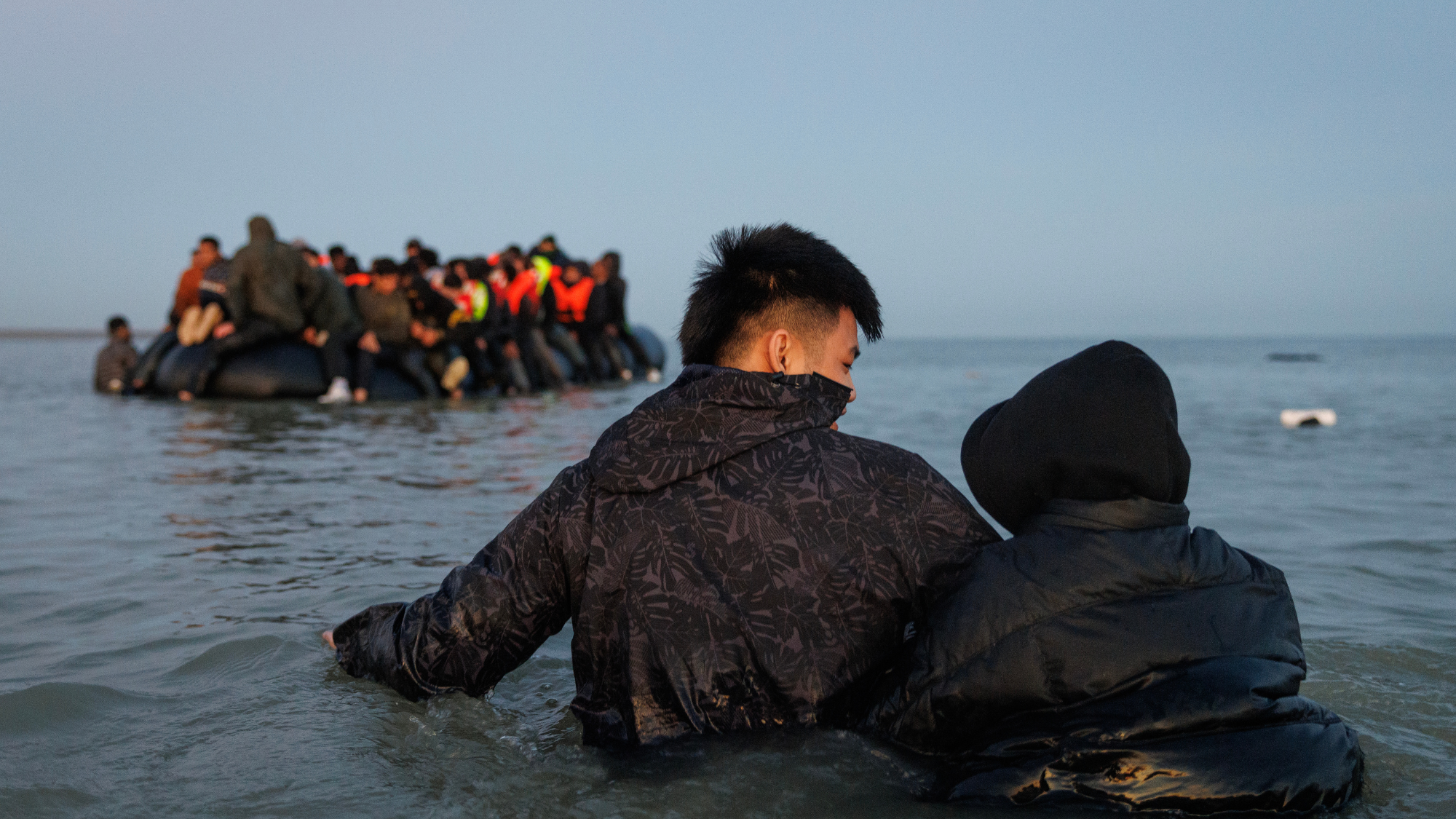Election 2015: How long can this Green Party joke last?
Greens’ Natalie Bennett in ‘car crash’ interview while Sturgeon and Farage show why they’re a TV threat

A free daily email with the biggest news stories of the day – and the best features from TheWeek.com
You are now subscribed
Your newsletter sign-up was successful
The ‘other’ parties are what’s hot right now - and they won the lion’s share of the airtime on the Sunday morning political TV shows. But while Ukip’s Nigel Farage of Ukip and SNP leader Nicola Sturgeon made the most of it, the Greens’ Natalie Bennett fared so poorly you have to wonder if her party can still be a threat (supposedly to Labour) come May.
As the Financial Times commentator Janan Ganesh wrote last week, the Greens’ “hippie gap year cannot last forever”.
Both Farage and Sturgeon, appearing on the Andrew Marr Show, showed why David Cameron is rightly nervous of taking part in the televised leaders’ debates: both of them can be so damned plausible in front the camera, whether you like their politics or not.
The Week
Escape your echo chamber. Get the facts behind the news, plus analysis from multiple perspectives.

Sign up for The Week's Free Newsletters
From our morning news briefing to a weekly Good News Newsletter, get the best of The Week delivered directly to your inbox.
From our morning news briefing to a weekly Good News Newsletter, get the best of The Week delivered directly to your inbox.
It took Farage more time than he would have liked to bat aside the defection of MEP Amjad Bashir to the Tories – Bashir had been told to pack his bags anyway, Farage claimed, after the party had become “increasingly alarmed” about allegations of impropriety – but he was soon on his way to his headline-grabbing thought for the day…
Which was that Ukip are now prepared to consider an electoral pact with the Tories if they do well enough on 7 May to hold the balance of power.
Farage's conditions were clear: the EU in/out referendum must be pulled forward from 2017 to this year and – crucially – none of the 4 million EU citizens resident in Britain can be allowed a vote. It must be for Brits only, he insisted.
Nicola Sturgeon, too, was in coalition mood - but only with Labour and only if Ed Miliband will back the Nationalists' policy of scrapping the Trident renewal programme and using the proceeds to fund the NHS and childcare.
A free daily email with the biggest news stories of the day – and the best features from TheWeek.com
Sturgeon also had views on the EU referendum (the Scots want desperately to stay in Europe, hence their willingness to talk to Labour): she wants the rules of the referendum to say that each of England, Wales and Scotland must show an individual majority voting against EU membership before the Brussels plug can be pulled.
If Sturgeon and Farage showed Cameron what they can produce in a TV debate, Natalie Bennett, leader of the Greens, appearing on the Sunday Politics, showed us why Cameron was so keen for her to be included. It was nothing short of a ‘car crash’ interview.
Seeking to defend the Greens’ beliefs – growth isn’t good for the country, full-time should not be necessary, membership of al-Qaeda and other terror groups should be decriminalised, the Army should be dismantled and replaced with a Dad’s Army civil defence force, etc, etc – she kept telling an exasperated Andrew Neil: “I would urge your viewers to go our website and see how the figures are worked out.”
YouGov released new polling on Friday which showed that while up ten per cent of the electorate are telling pollsters they will vote Green on 7 May, only one in four of those people have any idea what the party stands for.
I would humbly suggest that once they work it out, the Green ‘threat’ will soon be gone: for a quick taste of their policies, go to The Week’s recent briefing.
As for the televised leaders’ debates, where do things stand now? Last Sunday, Andrew Neil’s panel of political commentators were adamant that Cameron would never agree to join in. By yesterday, there’d been a 100% swing to Yes.
Isabel Oakeshott, the former Sunday Times journalist now working on Cameron’s biography, said: “I think the debates will happen… Cameron has got what he wants, in that he will not have to face Nigel Farage in a small group.”
Nick Watts of The Guardian agreed but feared the size of the group – now up to seven party leaders (Tory, Labour, Lib Dem, Ukip, Green, SNP and Plaid Cymru) – will make it a “democratic bore-athon”.
“We will all fall asleep,” he said. “It’s perfect for the Tories.”
Especially given that Natalie Bennett confirmed under Andrew Neil’s questioning that in both of the Big Seven debates she, as the leader of the Greens, and not Caroline Lucas, the party’s only MP, will represent the Raving Loony Green Party.
Watch the Natalia Bennett interview here
Nigel Horne is Comment Editor of The Week.co.uk. He was formerly Editor of the website until September 2013. He previously held executive roles at The Daily Telegraph and The Sunday Times.
-
 Sepsis ‘breakthrough’: the world’s first targeted treatment?
Sepsis ‘breakthrough’: the world’s first targeted treatment?The Explainer New drug could reverse effects of sepsis, rather than trying to treat infection with antibiotics
-
 James Van Der Beek obituary: fresh-faced Dawson’s Creek star
James Van Der Beek obituary: fresh-faced Dawson’s Creek starIn The Spotlight Van Der Beek fronted one of the most successful teen dramas of the 90s – but his Dawson fame proved a double-edged sword
-
 Is Andrew’s arrest the end for the monarchy?
Is Andrew’s arrest the end for the monarchy?Today's Big Question The King has distanced the Royal Family from his disgraced brother but a ‘fit of revolutionary disgust’ could still wipe them out
-
 How corrupt is the UK?
How corrupt is the UK?The Explainer Decline in standards ‘risks becoming a defining feature of our political culture’ as Britain falls to lowest ever score on global index
-
 The high street: Britain’s next political battleground?
The high street: Britain’s next political battleground?In the Spotlight Mass closure of shops and influx of organised crime are fuelling voter anger, and offer an opening for Reform UK
-
 Nigel Farage’s £9mn windfall: will it smooth his path to power?
Nigel Farage’s £9mn windfall: will it smooth his path to power?In Depth The record donation has come amidst rumours of collaboration with the Conservatives and allegations of racism in Farage's school days
-
 Is a Reform-Tory pact becoming more likely?
Is a Reform-Tory pact becoming more likely?Today’s Big Question Nigel Farage’s party is ahead in the polls but still falls well short of a Commons majority, while Conservatives are still losing MPs to Reform
-
 Nigel Farage: was he a teenage racist?
Nigel Farage: was he a teenage racist?Talking Point Farage’s denials have been ‘slippery’, but should claims from Reform leader’s schooldays be on the news agenda?
-
 Five takeaways from Plaid Cymru’s historic Caerphilly by-election win
Five takeaways from Plaid Cymru’s historic Caerphilly by-election winThe Explainer The ‘big beasts’ were ‘humbled’ but there was disappointment for second-placed Reform too
-
 Taking the low road: why the SNP is still standing strong
Taking the low road: why the SNP is still standing strongTalking Point Party is on track for a fifth consecutive victory in May’s Holyrood election, despite controversies and plummeting support
-
 The end of ‘golden ticket’ asylum rights
The end of ‘golden ticket’ asylum rightsThe Explainer Refugees lose automatic right to bring family over and must ‘earn’ indefinite right to remain